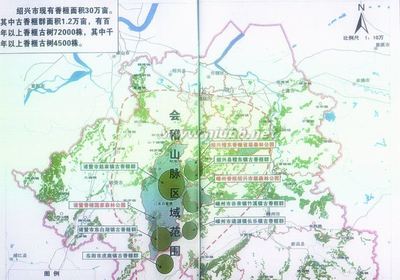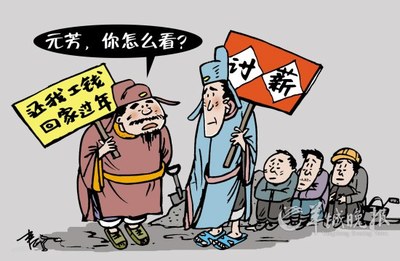Party sets course for next decade
Updated: 2013-11-16 02:36 China Daily
The Decision on Major Issues Concerning ComprehensivelyDeepening Reforms was adopted at the close oftheThirdPlenary Sessionof the 18th CPC CentralCommittee on Tuesday. The following is an abridged version of thefull text of the document:
I—Significance andprinciples
1.Reform and opening-up hasbeen a crucial choice that China has made regarding its destiny inmodern times. But there can never be an end to the need for theemancipation of individual thought or for continuing reform andopening-up. China must deepen its all-round reform with a newstarting point.
2.China must stickto the socialist market economy as the orientation of its reform,must promote social fairness and justice and must seek to advancethe well-being of the people. The general purpose of deepening itsall-round reform is to develop socialism with Chinesecharacteristics, to advance modernization in the State governancesystem and governance capability. The basic economic system shouldevolve on the decisive role of the market in resource allocation.Political reform must evolve around the leadership of the CommunistParty of China and advance the institutionalization of socialistdemocracy. Cultural reform must evolve around the socialist corevalue system. Social reform must evolve around the protection andimprovement of the people's livelihood and advance fairness andjustice. The development of an eco-conscious civilization mustevolve around the building of a beautiful China. The reform ofParty building must evolve on the effort to raise the level ofgovernance to be scientific, democratic and according to thelaw.
3.The reform of theeconomic system is the focus of all the efforts to deepen theall-round reform.
4.The successful experienceof the past reform and opening-up must be built upon. Decisiveresults are to be obtained in key areas in 2020.
II—Basic economicsystem
China's economic system is one with public ownership serving asits main body but allowing for the development of all types ofownership. Both public and non-public ownership are key componentsof China's socialist market economy.
5.Complete the propertyrights protection system. Property rights are the key factor ofownership. The property rights of the public economy areinviolable, as are the property rights of the non-public economy.The government protects the property rights and legitimateinterests of all kinds of ownership by ensuring that variousownerships have equal access to production factors, open and fairmarket competition and the same legal protection andsupervision.
6.Actively develop adiversified ownership economy. Diversified ownership integrated byState capital, collective capital and private capital is the primemethod for materializing the basic economic system, helping improvefunctions, increase value and promote the competitiveness of Statecapital. Allow more State-owned enterprises and other ownershipenterprises to develop into mixed-ownership enterprises. Non-Stateshares will be allowed in State capital investment projects.Mixed-ownership enterprises will be allowed to utilize employeestock ownership to form a vested community of capital owners andworkers. Improve the State-owned assets-management system andstrengthen State-asset supervision by focusing on capitalmanagement. Establish a number of State-owned capital operatingcompanies and back the transformation of qualified State-ownedenterprises into State-owned investment companies. Transfer someState-owned capital to social security funds. Improve theState-owned capital operation budget system and increase theproportion of State capital gains paid in public financing to 30percent by 2020, which will be used to ensure and improve people'slivelihoods.
7.Push for a modern systemfor State-owned enterprises. Accurately define the functions ofdifferent SOEs. Increase State capital's contribution to publicservices. In the natural monopoly industries held by State capital,the separation of government and enterprises, of government andfunds, and of franchise operation and government supervision arethe main thrust of the reform. Further break all forms ofadministrative monopoly. Improve coordinated and effectivecorporate governance structure. Establish a professional managementsystem. Establish long-term incentive and restraint mechanisms,strengthen SOE's investment accountability and explore ways topublicize important information, including SOEs' financial budgets.State-owned enterprises should reasonably increase the proportionof market-oriented recruitment, reasonably determine and strictlyregulate SOE executives' wage levels, and position benefits,consumption and business spending.
8.Support the healthydevelopment of the non-public economy, which will play an importantrole in fostering growth, promoting innovation, expandingemployment and increasing tax revenues. Adhere to the equality ofrights, equality of opportunity and equality of rules; abolish allforms of unreasonable regulations on the non-public economy,eliminate hidden barriers and fix specific measures promotingnon-public enterprises entering franchising fields. Encouragenon-public enterprises to participate in SOE reform, encouragetheir capital holdings of diversified-ownership enterprises andencourage qualified private enterprises to establish modernenterprise systems.
III—Modern marketsystem
Efforts are to be made to build a market system that is uniformbut open, orderly and competitive.
9.Make market rules thatare fair, open and transparent. Implement a unified market entrancesystem, with market players of all kinds able to enter equally andlegitimately into areas that are not on the negative list. Reformthe market regulation system, erasing regional protection,illegitimate favorable policies and monopoly. Perfect the marketexit mechanism to promote the survival of the fittest.
10.Perfect a mechanismwhere prices are determined by the market. Any price that can beaffected by the market must be left to the market. Push ahead withprice reforms of water, oil and natural gas, electricity,transportation and telecommunication. Areas in which the governmentsets prices will be confined to public utilities, public serviceand areas that are naturally monopolized.
11.Form a construction-landmarket that unifies urban and rural areas. Allow the sale, leasingand demutualization of rural, collectively owned buildable landunder the premise that it conforms to planning. Enlarge the area inwhich State-owned land can be leased. Reduce land allocation thatdoes not promote public welfare.
12.Improve financialmarkets. Further open up the financial industry. Allow qualifiedprivate capital to set up financial institutions such as small- andmedium-sized banks, under enhanced supervision. Push ahead withreform of policy-based financial institutions. Promote reformtoward a registration-based stock-issuing system and increase theproportion of direct financing. Improve market-based exchange rateformation mechanisms for the renminbi. Accelerate interest rateliberalization and capital-account convertibility. Build a depositinsurance system and complete the market-based exit system forfinancial institutions.
13.Deepen science andtechnology system reform. Set up and complete a system thatencourages innovation. Perfect a market-based system thatencourages technological innovation. Strengthen intellectualproperty application and protection. Explore ways to set upintellectual-property courts. Break executive-leading anddepartmental segmentation, building a system where the marketdecides innovation program selection, resource allocation andresult assessment. Improve the venture capital system, innovatebusiness models and promote capitalization and industrialization,and scientific and technological achievements.
IV—Government role
The government must effectively shift its role by buildingitself into a service-type government that bases its functions onthe law.
14.Improve macroeconomicregulation and control. Government review and approval procedureswill be removed for investors except in areas relating to nationalsecurity, ecological safety, important arrangements formanufacturing capacity, development of strategic resources andcrucial public interests. Establish and improve the long-termmechanism to prevent overcapacity in manufacturing sectors. Form acomprehensive assessment system for officials' performance torectify the one that overemphasizes GDP growth. Produce charts ofassets and debts of central and local governments, and set upintegrated credit and real-estate data platforms.
15.Perform governmentduties comprehensively and correctly. Further deepen the reform ofadministrative review and approval procedures, and reduce thecentral government's control over market operations to a minimallevel. The government should withdraw from business activities thatcan be regulated and modulated by market rules. Competition must beintroduced and strengthened in the government's purchase ofservices. Gradually abrogate the administrative rank of publiclyfunded organizations and set up a registration mechanism for suchorganizations.
16.Streamline governmentstructure. Actively and steadily carry out reform that mergesministries that have overlapping functions. Encourage someprovinces to explore provincial government's direct administrationof cities or counties. Strictly control the number and expense ofgovernment employees.
V—Fiscal and taxsystem
The fiscal and taxation system is an important guarantee ofState governance. It must balance the interests of central andlocal governments.
17.Improve the budgetarysystem. Establish a standard and reasonable debt-management systemfor central and local governments and a risk-alert system. Inprinciple, a shortfall in local government should be filled bygeneral transfer payments. Clean, merge and standardize specialtransfer payments.
18.Improve the taxationsystem. Perfect the local taxation base by gradually raising theshare of direct taxation. Advance value-added tax reform andsimplify rate levels, and adjust the scope and rate of theconsumption tax. Energy and pollution-intensive products andhigh-end consumer products will be subject to a consumption tax.Also, Accelerate property-tax legislation and related reform at anappropriate time. Change the current environmental-protection feeinto an environment tax.
19.Establish a system inwhich the government's administrative authority is commensuratewith its spending responsibility. Increase the administrativeauthority and spending responsibility of the central government.The central government will oversee expenditure for defense,diplomacy, national security and other issues related to nationalmarket rule and management. Keep the current fiscal power ofcentral and local governments stable. Close the fiscal revenuedivide between central and local government.
VI—Urban-ruraldevelopment
The existing urban-rural dual structure is a main obstacle tointegrated development. Efforts must be made to allow farmers toparticipate in China's modernization.
20.Accelerate the buildingof a new agricultural-operation system based on a mix of family,collective, cooperative and enterprise operations. Land-contractingrights will be protected. Farmers are allowed to becomeshareholders in the agriculture-industrialization via theirland-contracting rights. Private capital is encouraged to invest ina modern planting and breeding industry, and for introducing modernproduction and management methods.
21.Farmers will be givenmore property rights. They are encouraged to develop a shareholdingsystem from which they can realize benefits. Meanwhile, they canalso sell a share or take it as collateral or warranty. They alsohave the right of succession. Moreover, the homestead system inrural areas will be improved, and farmers' usufruct rights ofhomestead will be ensured. A pilot program will be carried out insome areas to discover other channels for improving farmers'income. A rural property-rights trading market will beestablished.
22.Amore balanced allocation of public resources between urban andrural areas will be promoted. Migrant workers should get the samepay for the same job. Farmers should receive a fair share of theprofits from land-value appreciation. Deposits in rural financialinstitutions should be mainly used to finance the development ofagriculture and rural areas. The agricultural subsidiary system andinsurance system will be improved. Social-capital investment isencouraged for construction in rural areas.
23.Build a healthyurbanization that puts people at the center. Reform of the hukou(or household registration) system will be accelerated to helpfarmers become urban residents. The country will relax overallcontrol of farmers settling in towns and small cities, and relaxrestrictions on settling in medium-sized cities in an orderlymanner. China should set reasonable requirements for ruralresidents to obtain hukou in large cities, and strictly control thesize of population in megacities. Efforts should be made to makebasic urban public services available to all permanent residents incities, including all rural residents. This includes theaffordable-housing system and the social security network.
VII—Furtheropening-up
Efforts are to be made to facilitate overseas companies' entryto China and Chinese companies' expansion abroad.
24.Widen investment access.The finance, education, culture and medical sectors will enjoy anorderly opening-up to market access, while nursery, pension,architecture design, accounting and auditing, trade and logistics,and e-commerce investment restrictions will be eased. Furtherliberalization will be achieved in general manufacturing, and thestreamlining of special customs supervisory areas will beaccelerated. Based on practices in the China (Shanghai) Pilot FreeTrade Zone, a number of qualified areas will be built into FTAs.Enterprises and individuals will be encouraged to invest overseasand undertake contract and labor cooperation projects at their ownrisk, through greenfield investment, mergers and acquisitions,equities and joint investment. Investment treaty negotiations withother countries and regions will be expedited.
25.Construction offree-trade zones will be sped up, with adherence to the rules ofworld trade system and insistence on bilateral, multilateral andregional cooperation. Reforms will be carried out in market access,customs supervision and inspection and quarantine management.Negotiations in emerging issues such as environmental protection,investment protection, government procurement and e-commerce willbe accelerated to form a global, high-standard network of freetrade zones.
26.Inland and border areaswill be further opened up. With the formation of industrialclusters, inland cities will be encouraged to open internationalpassenger and cargo air routes, and develop multimodaltransportation. An exchange of information, mutual recognition ofsupervision and assistance in law enforcement will be achievedamong coastal border clearance and port management departments.Special methods and policies will be implemented at key borders,and in bordering cities and economic cooperation zones to promotepersonnel exchanges, logistics and tourism. Financial institutionsfocusing on development will be established to accelerateinfrastructural connections among neighboring countries andregions.
VIII—Politicalsystem
Efforts are to be made to uphold and improve the People'sCongress system, the CPC-led multi-party cooperative system andpolitical consultative system, the system of autonomous governmentin ethnic areas, and the system of grassroots-level mass autonomousgovernment.
27.Push forward the systemof people's congresses to keep up with the times. The quality oflegislation should be improved to prevent local protectionism andprevent some departments from legalizing their interests. People'scongresses should provide more supervision of the government'sfinancial budget and State-owned assets. Governments at all levelsmust report to the local people's congresses before adoptingimportant policies.
28.Push forward themulti-layer development of the consultative democracy system.Enhance the construction of new types of think tanks with Chinesecharacteristics. Promote a consultative policy system. Strengthenand develop equal, unified and harmonious ethnic relationships.Governments should seek advice from the local Chinese People'sPolitical Consultative Conference before making importantdecisions.
29.Develop grassrootsdemocracy. Improve the system of grassroots election, discussion,publicity and responsibility. Improve supervision by urbanresidents and villagers. Improve the democratic management system,such as the workers' representative conferences, in companies andgovernment institutions.
IX—Rule of law
Efforts are to be made to deepen the reform of the justicesystem, to protect the people's rights and let the masses feelequality and justice in every court verdict.
30.Uphold the Constitutionand laws. Establish a system of legal counsel and improve thereview mechanisms on regulations. Give big cities the right to makeregulations.
31.Deepen reforms ofadministrative law enforcement. Centralize administrative powersand allocate more law enforcement resources in key areas, includingfood production, medicine production and environmental protection.Improve the service quality of urban management.
32.Ensure independence andfairness in courts and prosecuting bodies. Unify the management ofstaff members and properties of courts and procuratorates below theprovincial level. Separate the jurisdiction of courts fromadministrative divisions.
33.Let the judicial systembe more transparent. Record and keep all court files. Strictlyregulate procedures of sentence commuting, parole and medicalparole.
34.Boost the judicialsystem to protect human rights. Improve mechanisms to avoid falseaccusations and confessions obtained through torture. Graduallyreduce the number of charges that could lead to a death penalty.Laojiao, or re-education through labor, will be abolished.Meanwhile, strengthen the judicial relief and legal aid system.
X—Supervision ofpower
The key to empowering the system is to keep it open and easy tomonitor by the people and to have a complex system governing itsproceedings.
35.Establish a scientificand effective means of power restriction, with a coordinationmechanism. Improve the leadership system of the Party and theState, and insist on enforcing the principle of democraticcentralism. Specify the responsibilities and scope of power ofofficials at various levels. Provide a list of the powers of localgovernments and affiliated bodies at various levels.
36.Enhance innovativesystems for identifyingcorruption.Anti-corruption responsibility belongs to the Party committee, withthe commission for discipline inspection being responsible forsupervision. Ensure that the Central Commission for DisciplineInspection sends discipline inspectors to central-level Party andgovernment organs and exercises unified management.
37.Normalize a system forimproving the work style of officials and government departments.Speed up reform to fight formalism, bureaucracy, hedonism andextravagance. Reduce meetings and simplify official documents.Improve the financial budgeting process, along with approval andaudit systems, and focus on the control of administrative expense.Reform the evaluation process for officials and focus on solvingthe problem of vanity projects.
XI—Cultural system
Building a culturally strong country, and increasing itscultural power is the root of China's cultural development.
38.Transfer the role of thegovernment from being the provider of cultural products to themanager. Improve the mechanism for dealing with emergencies on theInternet. Institutionalize the government information releasesystem and standardize the vocational qualifications ofjournalists.
39.Further transformState-owned, for-profit cultural institutions into enterprises.Encourage the development of non-public-owned cultural enterprises,allowing them to participate in overseas publishing and onlinepublishing. Expand government subsidies and procurement, andstrengthen copyright protection.
40.Build a modernizedpublic cultural services system. Establish a feedback mechanism toensure that cultural programs can effectively meet the demands ofthe people. Encourage social forces and capital investment incultural services. Cultivate nonprofit organizations.
41.Further open up culturalmarkets by enlarging the scope of cultural exchanges. Support keymedia to expand cultural exchange into national and internationalmarkets.
XII—Socialservices
Reform is to be quickened to allow more benefits from thedevelopment to be more equally shared by all people.
42.Deepen educationalreform. Continue reforms of the examination and enrollment systemby evaluating students not only by their final exam scores but alsotheir performance in school. Students should get more than onechance to take an exam that decides their enrollment.Provincial-level educational authorities and schools should enjoygreater autonomy.
43.Improve the supportingmechanism for employment and entrepreneurship.Employment-supporting policies should target college graduates,migrant workers, impoverished city dwellers and retired soldiers.Entrepreneurship of college students and making better use ofgovernment funds to help graduates work and start their ownbusinesses should be promoted.
44.Optimize the incomedistribution system. Improve collective bargaining between capitaland labor to decide salaries and pay raises. Protect investors'legal rights and improve the investment return system for listedcompanies. Increase residents' income by diversifying investmentchannels. Improve tax deduction policies on charitable donations.Clean up gray income.
45.Establish a fairer andmore sustainable social welfare system. Stipulate policies forgradually suspending the retirement age of employees. The centralgovernment will take over the social pooling component of pensionsfor urban and rural residents. Speed up reform of pension programsfor employees in public institutions affiliated with governmentdepartments. Diversify investment vehicles for the national socialsecurity fund. Further develope the elderly services industry andimprove protection mechanisms for left-behind children, women andseniors.
46.Deepen the reform of themedical and health sectors. Allow couples to have two children ifone parent is a single child and improve the family planningpolicy. Speed the reform of public hospitals. Encourage privateinvestment in the medical sector and prioritize supportingnonprofit hospitals run by private investors. Allow doctors to havea license to work in more than one hospital. Allow medicalinsurance to cover private hospitals.
XIII—Socialgovernance
Efforts are to be made to promote harmony and vitality ofsociety and to maintain State security.
47.Innovate socialgovernance methods. Use legal frameworks and legal methods toreconcile social conflicts. The government should continue tooptimize governance and service platforms at the grassroots leveland respond to the interests of the people in a timely manner.
48.Stimulate the vitalityof social organizations. Social organizations will take over publicservices they are suitable to provide. The country will prioritizethe development of industry associations, trade unions and socialorganizations in fields of science and charity, as well as urbanand rural community services. They are to directly apply andregister according to the law when they are founded.
49.Reform the project ofpreventing and reconciling social conflicts. A plan will beestablished to evaluate risks to social stability in the making ofmajor decisions. The country will further reform the administrativereview system and correct illegal or inappropriate administrativeactions. The petition system will be reformed and a systemestablished to take public petitions online.
50.Improve the publicsecurity system. The country will build a strict supervisory systemcovering food and drug safety. A tracing-back system will becreated for food production and quality labeling. The country willset up a State security committee in order to ensure the securityof the nation.
XIV—Ecologicalcivilization
A comprehensive system is to be established, featuring thestrictest possible rules to protect the ecological system.
51.Improve the propertyrights system for natural resources and the administration of theiruse. Register natural resources, such as bodies of water andforests, in the property rights system, establish a space-planningsystem and clarify development restrictions for land and space.
52.Draw a “red line” forecological protection. To set up a national park system. Buildmonitoring and warning mechanisms for the carrying capacity ofnatural resources and the environment. End the GDP assessment ofkey poverty-alleviation areas with fragile eco-systems. Explore andestablish a natural resources balance sheet, officials will receiveaudits on natural resources when leaving office. A lifelongresponsibility system for bioenvironment damage will beestablished.
53.Establish a system ofpaid use for natural resources ecological compensation. Acceleratereforms of natural resources commodities pricing, and graduallylevy taxes on all kinds of natural resources and space. Increasethe price of industrial land. Develop a market for environmentprotection and push ahead with a trading system for pollutiondischarge, carbon emissions and water rights.
54.Reform environmentalprotection and management systems. Establish a system in which allpollutants are monitored and regulated. Release timelyenvironmental information and improve the reporting system tostrengthen social supervision. Improve the pollutant-dischargelicensing system and control the pollutants. Polluters who damagethe environment must compensate for the damage and could receivecriminal sanctions.
XV—Defense and armyreform
The People's Liberation Army must be loyal to the CPC, be ableto win and be persistent with its good traditions.
55.Deepen the reform of themilitary's composition and functions. Improve the combined combatcommand systems of the Central Military Commission and militarycommands. Push forward reform of training and logistics for jointcombat operations. Optimize the structure and command mechanism ofthe Armed Police Force. Adjust the personnel composition of themilitary and reduce non-combatant departments and staffmembers.
56.Boost the adjustment ofmilitary policies and mechanisms. A modern personnel system forofficers will gradually take shape with the establishment of anall-volunteer officer system as the initial step. Improvemanagement of military expenditures.
57.Boost coordinateddevelopment of military and civilian industries. Reform thedevelopment, production and procurement of weapons. Encourageprivate businesses to invest in the development and repair sectorsof military products.
XVI—CPC'sleadership
The CPC must strengthen and improve its leadership in such a wayto become a Party that learns, innovates and serves the people.
58.Promote intra-Partydemocracy and firmly maintain the central leadership, ensuring thatorders are timely received and fully implemented. The CentralReform Leading Group is commissioned to design and coordinate thereform.
59.Reform the evaluationand promotion system for Party officials. Improve a system in whichofficials can be demoted or fired for poor performance. Encouragetalent and clear barriers to recruiting the best. Smooth talentflow among Party and government bodies, enterprises and socialorganizations. Better attract foreign talent and overseas Chineseto develop their careers in China.
60.Encourage innovation andexploration at the local and grassroots level. Strengthen the majorreform pilot program, timely sum up experience and toleratemistakes.
RelatedStories
- Special Coverage
Special: CPC meeting to deepen reform
Highlights of reform guidline
The Decision on Major Issues ConcerningComprehensively Deepening Reforms wasissuedFriday to guide China's future reforms.
Road map unveiled for profoundreform
The Party on Friday promised to push forward withprofound reforms in coming years, stressing the rule of law is anecessity to achieve prosperity.
Special: CPC 3rd Plenary Session
Chinese market to open wider
China will be more open to global markets andforeign businesses and restrictions on overseas investors are to belifted for industries including
e-commerce and logistics.
China to optimize army structure
China will optimize the size and structure of thearmy, adjust and improve the proportion between various troops, andreduce non-combat institutions and personnel.
Family planning to be eased
China will loosen its decades-long family planningpopulation policy, allowing couples to have two children if one ofthem is an only child, according to a key CPC decision issued onFriday.
China to abolish labor camp
China will abolish the "reeducation through labor"system as part of efforts to improve human rights and judicialpractices, said a key decision by the Communist Party of China(CPC) on Friday.
 爱华网
爱华网



